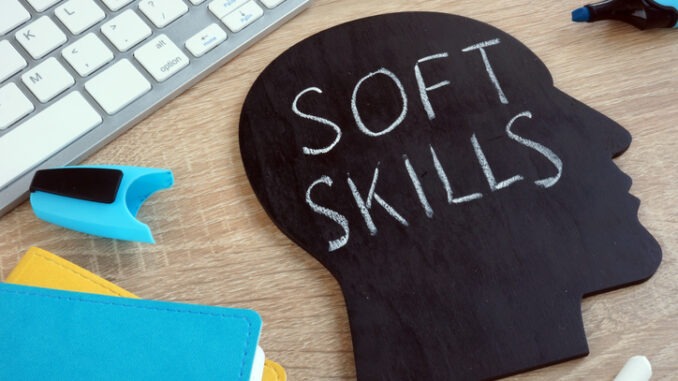In a world propelled by technological advancements, traditional soft skills—also referred to as social or people skills— still have significant value in the modern workplace. Studies indicate that customers value the personal touch offered by businesses. But how can soft skills remain relevant in an increasingly digital world, and which are important to help dealers drive growth and sales?
Despite rapid advancements in technology, human abilities such as critical thinking, emotional intelligence, creativity and problem-solving remain indispensable. These skills play a pivotal role in ensuring that direct person-to-person contact and engagement remain authentic and effective.
For dealers, harnessing and developing these skills, both individually and within their teams, can yield significant benefits in areas such as customer engagement, employee retention, risk and project management. Unlike technology, which evolves rapidly, soft skills retain their relevance regardless of shifts in the work landscape.
Critical thinking
Essential for success, critical thinking drives superior decision-making. By leveraging information and resources to make data-driven choices, individuals with strong critical thinking skills are highly valued by businesses who want to grow and maximise opportunities. In an era defined by an abundance of information, critical thinking equips dealers with the necessary tools to assess their businesses and the market effectively, enabling them to identify the most strategic pathways forward. Critical thinking serves as a filter, ensuring that decisions are grounded in factual evidence. It empowers dealers to identify pertinent information, ask the right questions, and evaluate both short- and long-term consequences of potential changes or choices.
Emotional intelligence
In today’s challenging business environment, emotional intelligence emerges as a vital leadership skill. Rooted in self-awareness and empathy, emotional intelligence enables dealers to forge deeper connections with customers by understanding their motivations. By tapping into the emotional drivers behind decision-making processes, dealers can understand intrinsic and extrinsic motivations. Furthermore, emotional intelligence plays a pivotal role in shaping the culture and ethos of a business, facilitating effective communication of the brand message. This clear communication fosters an understanding of the business culture, ultimately contributing to stronger relationships and brand loyalty. Additionally, a culture of emotional intelligence motivates employees, creating a positive and supportive environment where people actively communicate ideas and solutions.
Creativity
While technology serves as a valuable tool for creativity, it’s essential to recognise that, for the most part, technology can only replicate or imitate existing ideas—innovation remains primarily within the realm of human endeavour. In the modern workplace, creativity demands a diverse set of skills and an understanding of various techniques. For dealers, having a workforce that embraces creativity is crucial for showcasing and communicating new ideas and unique perspectives. Dealers can derive immense benefits from employees who possess creative thinking skills, capable of exploring unconventional solutions, thinking holistically, and collaborating effectively to generate fresh ideas. As creativity often involves challenging established norms and processes, it serves as a catalyst for implementing innovative strategies that drive business growth and success.
Problem solving
Effective problem-solving in today’s workplace requires the ability to analyse, assess, inform and implement. Exceptional problem-solving skills enable businesses to remain agile and responsive, while also comprehending risk and consequence. problem solvers must navigate complex, multifaceted challenges, understanding the intricate layers of modern-day issues. By refining problem-solving abilities, dealers gain the capacity to pinpoint and rectify potential weaknesses, reduce the recurrence of issues, and elevate the consistency of operations and services. This honing of problem-solving skills enables businesses to swiftly adapt to changing circumstances, bolster resilience, and foster ongoing enhancement across all facets of their operations.
In conclusion, amidst the rapid technological advancements shaping today’s business landscape, the enduring value of human abilities such as critical thinking, emotional intelligence, creativity, and problem-solving cannot be overstated. By fostering these skills within themselves and their teams, dealers can navigate challenges with resilience, drive innovation, and ensure sustained growth in an ever-evolving market environment.



Be the first to comment